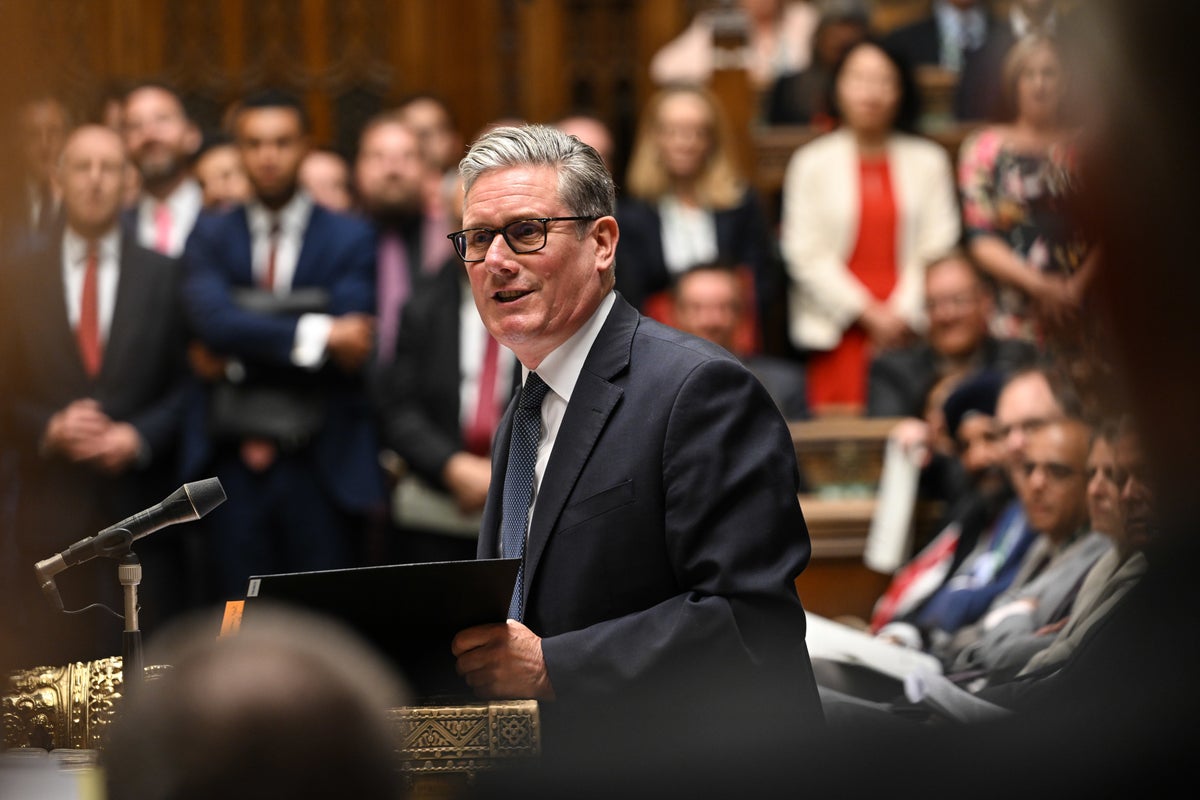As a parting shot at the end of the parliamentary term, the prime minister has rightly chosen to remind his party as to who is in charge of this government.
Sir Keir Starmer, via his chief whip Sir Alan Campbell and the No 10 machine, has presented some of his most rebellious backbenchers with the chilling consequences of their serial actions. Four of his not-so-loyal MPs have had the Labour whip withdrawn, while another handful have been deprived of their unpaid but pleasant sinecures as overseas trade envoys.
Thus, Rachael Maskell, Neil Duncan-Jordan, Brian Leishman and Chris Hinchliff can no longer describe themselves as Labour MPs, although they remain in the party, while Rosena Allin-Khan, Bell Ribeiro-Addy and Mohammad Yasin have been deprived of official hospitality in South Africa, Ghana and Pakistan, respectively.
Meanwhile, Diane Abbott, who directly challenged her leader over welfare reform at PMQs, finds herself suspended from the Labour Party altogether – albeit over an investigation into the separate matter of claiming she still stands by a controversial 2023 letter implying that racism against people of colour was worse than antisemitism or prejudice against travellers.
The position of these rebels, such as it is, has attracted a great deal of sympathy within the Labour Party, and some from outside its ranks. It is understandable, given the passions aroused in the debates about disability benefits – a sensitive issue. However, it is wrong-headed.
The unprecedented, and largely successful, attempt to kill the government’s modest attempt at welfare reform did severe damage, both to the ability of the Starmer administration to govern effectively and to the mission to make the British social security system effective and affordable in the longer term. That, in turn, endangers the stability of the public finances and the ability of the UK to rely on the kindness of strangers in the international bond markets.
It is perfectly fair to point out that the sums involved in the proposed changes in the Universal Credit and Personal Independence Payment Bill were small in relation to the total of public spending – about £4.5bn. However, the same could be said for almost any “line” in the public accounts, and managing the annual government deficit is a matter of very narrow margins.
Britain’s economy is already especially vulnerable to external shocks because of its high level of indebtedness, and it would not take much to provoke a full-on financial crisis. That would dump Labour out of office for a generation. As the chancellor, Rachel Reeves, reminded her party this week, “there is nothing progressive about a government that simply spends more and more each year on debt interest, instead of on the priorities of ordinary working people. And fiscal stability is a choice that reflects economic reality”.
There is indeed nothing progressive about wrecking the first Labour government in 14 years in its attempts to demonstrate its competence and fiscal responsibility. The rebels may feel that they have helped vulnerable people they rightly care about. But the hard, unavoidable consequences of their actions are to make their Labour government look weak and divided, and to strengthen Reform UK and Kemi Badenoch. Labour’s poll ratings are dismal; historically bad. And what do the rebels think a government led by Nigel Farage would do to the welfare state? It hardly bears contemplating.
Of course, the way ministers handled the welfare reform bill was flawed – and they have acknowledged as much. Yet even after Sir Keir and his colleagues had virtually abandoned their own bill, and conceded almost all the rebels’ demands, many Labour MPs still voted with the opposition, an act of performative politics that changed nothing. They did so in preference to facing up to the messy compromises of government and the need to stay united. It is they, the hardcore rebels, who ended up being truculent.
The whole welfare bill fiasco was a humiliation in every way for a government not quite one year old. In truth, some of the dissidents who’ve now been punished have been plotting and campaigning against their own government almost since the general election. The rebels were asking for trouble, and they could not have been surprised that they attracted the wrath of the leadership. Much the same had happened last year with an attempt to end the two-child limit on child benefit.
Suspending the whip is normal parliamentary activity. What is highly abnormal is Labour backbenchers sabotaging their own legislation. They may recall how, not much more than a year ago, when they were aspirant MPs, they and their party made such rich political capital out of the promise to end the Tories’ “chaos and confusion”. What are the voters to make of the spectacles of recent weeks? What, indeed, are they to make of doctors engaged in a parallel exercise in destroying the future of the National Health Service?
Governments have a perfect right to expect their MPs to support their programme. Without loyalty and discipline, parliamentary government cannot function. That, as previous prime ministers have found, applies just as much to an administration enjoying a nominal landslide majority as one in a hung parliament (when the constant threat of a general election can, paradoxically, make discipline easier to enforce). If anything, given the sheer size of the rebellion on social security – 130 of his own MPs threatening to defeat a government bill – Sir Keir has been perhaps a little too lenient.
In the end, the prime minister has no alternative but to use all the means at his disposal to deliver his programme in the national interest. In his words, “country before party”. His job is not worth the candle if he has to offer a veto to any group of MPs unwilling to join in his missions to rebuild the country and merely indulge themselves. They need to be told that they are no longer teenage activists; they are legislators in a G7 economy.
It is perhaps not such a shock that so many came from the 2024 intake. It had been assumed that they’d be especially loyal to Sir Keir because, frankly, he helped them win their seats, sometimes in the most unlikely of true-blue constituencies, places in Dorset or Suffolk that had been Conservative for a century or more. Politics is an ungrateful business, but the prime minister could expect more credit for taking his party from the Corbynite debacle of 2019 and into government in a few short years.
The rebels, many younger politicians who grew up during the leaderships of Ed Miliband and Jeremy Corbyn, are stuck in an oppositionist “Corbynista” mindset and need some further immersion in the realities of government and the duty they owe to the whole British people. In turn, it is Sir Keir’s job to confront them with the “hard choices” so often talked about but ducked by our politicians in all parties in recent years – the disease of “cakeism” has survived the departure of Boris Johnson and grown widespread.
No government, of any party, can run a country if it has to give its most dissident members a veto on its actions. One day, in the not-too-distant future, there will have to be another attempt at reforming the British social security system in line with the nation’s resources. That challenge has not been magicked away by one parliamentary rebellion, no matter how powerful.
The prime minister must press on with reform across the public sector, and therefore has to restore order and discipline in his troops. If not, then like any other party that behaves like a rabble, they will lose the next general election, and the rebels will have betrayed the very people who put their trust in them. Mr Farage grinning outside No 10 is not a legacy to be proud of.





